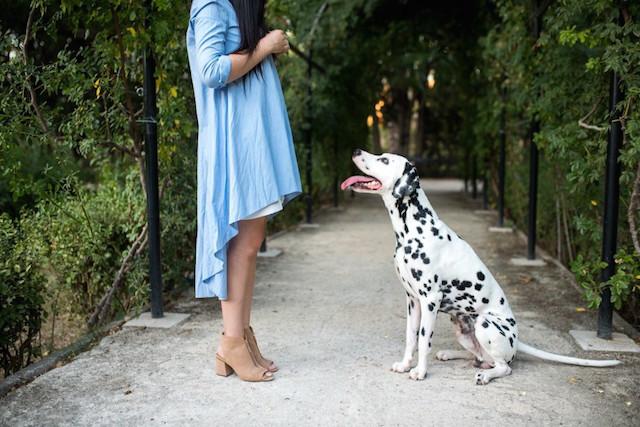
Many people have pets during pregnancy but they should take certain precautions to decrease risks. There are various types of pets today ranging from traditional cats and dogs to more exotic varieties. Each type of pet will have different precautions and concerns during pregnancy.
Types of Pets:
- Birds
Birds commonly carrying infections that can pass from the pet to mom or the baby. These infections include campylobacter, salmonella, chlamydiosis and protozoal infections. The bird must be taken to the veterinarian to rule out these infections before pregnancy or immediately after finding out mom is pregnant. - Cats
Toxoplasmosis is the number one concern in a home with cats and a pregnancy. With only 15% of women being immune to the infection it is important to have the cat tested for the condition. Toxoplasmosis can also be contracted from soil infected with cat feces so gardening gloves are a necessary precaution. - Dogs
Dogs are generally safe around pregnant women unless they have a worm infection or they are of a large dog breed. If worms are a problem, the dog should be kept in an area of the home away from the pregnant mom. If the dog is a large breed, retraining may be needed to stop the dog from jumping onto the pregnant belly. - Reptiles
Reptiles commonly carry salmonella which can be transmitted through contact with feces. If a reptile is in the home, the pregnant mom needs to ensure the pet is not present in the same room as food or food prep when out of the cage. Hand washing and disinfection of any surfaces where the reptile may have defecated is important. - Rodents
Whether rodents are in the home as a pet or to feed a reptile, they can carry lymphocytic choriomeningitis virus. This virus can lead to death of the fetus. - Exotic Pets
Exotic pets carry an entirely different set of risk factors. In order to appraise the potential problems in pregnancy with an exotic pet, the veterinarian will need to be included in the pregnancy plans. - Pet Food
Recent recalls of pet food for potential salmonella contamination means mom need to be extremely cautious when feeding pets. Hand washing is essential. If there is a concern, wearing gloves to handle pet food is a good option. - Flea and Tick Treatments
While there are no pregnancy precautions listed with many flea and tick treatments, adding precautions to these treatments is the best option for the pregnant mom. Wearing gloves to apply the treatment and keeping the pet off of public furniture for at least 3 hours after treatment is a good choice.
- Reassigning Pet Duties
As the pregnancy progresses, walking the family pet, changing cat litter and feeding may pose more of a struggle for the pregnant mom than earlier in the pregnancy. These chores need to be reassigned to another family member. This is especially true of changing kitty litter. - Birth Day
On the day mom goes to the hospital, the pets will need to be cared for. Assigning this duty to a family member is something that should be taken care of when the hospital bag is packed. If there is no one to care for the pet, local pet sitters or boarding houses may be able to care for the pet. - New Pets
It is not a great choice to get a new pet while pregnant. New pets have a greater chance of posing training problems as well as potential worm infection in new puppies. The best choice is to wait until baby is older to add a new pet to the family.
